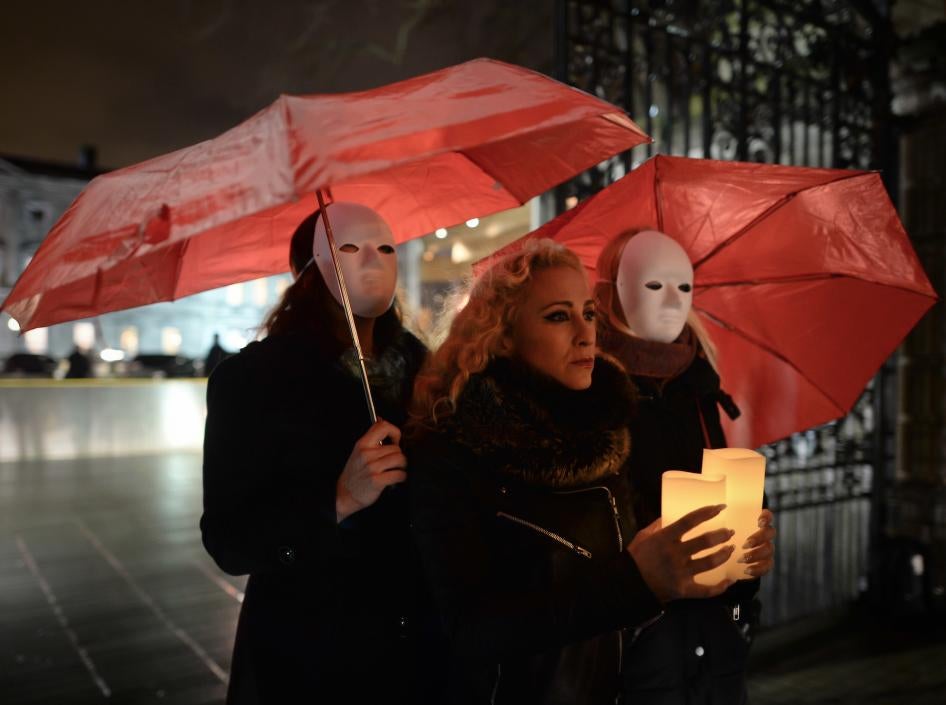Geila Ibram was killed in April, stabbed multiple times in an apartment in Limerick. Community advocates say her death was preventable.
In 2017, Ireland criminalised the buying of sex, despite widespread condemnation from sex workers’ rights organisations and experts at home and abroad.
The law brought harsher penalties for sex workers found guilty of brothel-keeping and “living on earnings of prostitution”. Friends who share a flat because it’s safer than working alone now face possible arrest for keeping a brothel and a €5,000 fine or 12 months in prison.
An Amnesty International Ireland investigation found “criminalising the purchase of sex is forcing sex workers to take more risks, while penalising brothel-keeping is preventing sex workers from working together to ensure their own safety”. Sex work should not be criminalised.
When the Irish law was introduced, studies from France, Sweden, Norway and others who adopted the same “Nordic Model” already showed that criminalisation, including criminalisation of clients, leads to an increase in violence against women while having no demonstrable effect on ending trafficking or the demand for sex work.
The Department of Justice (DoJ) was due to complete its review of the law in 2022, but it is apparently stalled. However, other reports issued since the law’s introduction can tell us a lot about how it’s likely to go.
Four studies of the 2017 law, which included consultation with sex workers, found Ireland is no exception to the European rule: the Nordic Model increases police violence, discrimination, sexual abuse and economic marginalisation.
Conversely, when researchers interviewed only police, service providers and others with no experience of selling sex, they report enthusiastic support for criminalisation.
In 2019, UglyMugs.ie, an organisation that compiles and analyses data from sex workers, found a 92pc spike in reports of violent crime against sex workers in the first two years after the law came into effect, based on reports they received directly from victims.
In 2020, a report by Maynooth University experts found the law to have a “negative impact ... on the abilities of sex workers to keep safe and reduce harms to their health and well-being”.
The methodology included four focus groups with 26 sex workers in Dublin, Cork, Limerick and Galway co-led by experts from Sex Workers Alliance Ireland.
In 2022, Amnesty found the law had increased “targeting and abuse” after researchers interviewed 30 current or former sex workers.
Later last year, a DoJ-funded report based on interviews with 25 sex workers in Dublin and Limerick found one-fifth of those interviewed had been sexually exploited by gardaí.
Meanwhile, a 2020 report published by UCD – for which not a single sex worker was interviewed – said the law was “very promising.”
Sex workers and their allies continue to assert that they are not “now decriminalised” but instead face higher risk of arrest, assault and murder because the law has pushed them further underground.
I lived in Dublin for five years, a period that spanned the marriage equality referendum and the repeal of the Eighth Amendment that led to the decriminalisation of abortion. Ireland is capable of decisive action on human rights when it listens to queer people and women.
The decriminalisation of sex work is Ireland’s next opportunity to choose equality, safety and rights.
While it is not up for referendum, a 2021 Amnesty poll found 70pc of those who responded believe sex workers should be consulted on “any law that directly affects them”.
The DoJ should ensure the review is centred on meaningful consultation with sex worker rights defenders, who have unmatched expertise in providing protection services not only to sex workers but to people who were forced or trafficked into selling sex unwillingly.
A 2021 investigation from Dublin-based Front Line Defenders found sex worker rights defenders do “life-saving” anti-trafficking work, including negotiating access to brothels, helping women plan escape routes, getting medical care to those in need and training victims in how to access justice.
Criminalisation hinders anti-trafficking work by making it harder and more dangerous to enter brothels, gather accounts and reach victims.
In the more than a dozen countries in which I’ve investigated this, the owners of brothels, massage parlours and bars are more likely to aggressively deny that sex work happens in their establishment if prostitution, brothel keeping or other activities connected to sex work are criminalised.
Criminalisation doesn’t end demand; it pushes sex work further underground and makes life more dangerous for frontline anti-trafficking activists, who already operate with extremely limited access to funding and security measures.
Policy advocates on both sides of this polarising issue have good reason to urge the DoJ to consult sex worker rights defenders. Not only are they experts in their own experiences of violence and discrimination, they are experts in exactly how, when and where trafficking occurs.
To protect sex workers and victims of trafficking, the Government’s stalled review needs to prioritise consultation with community-based advocates in the way the law’s introduction did not.









